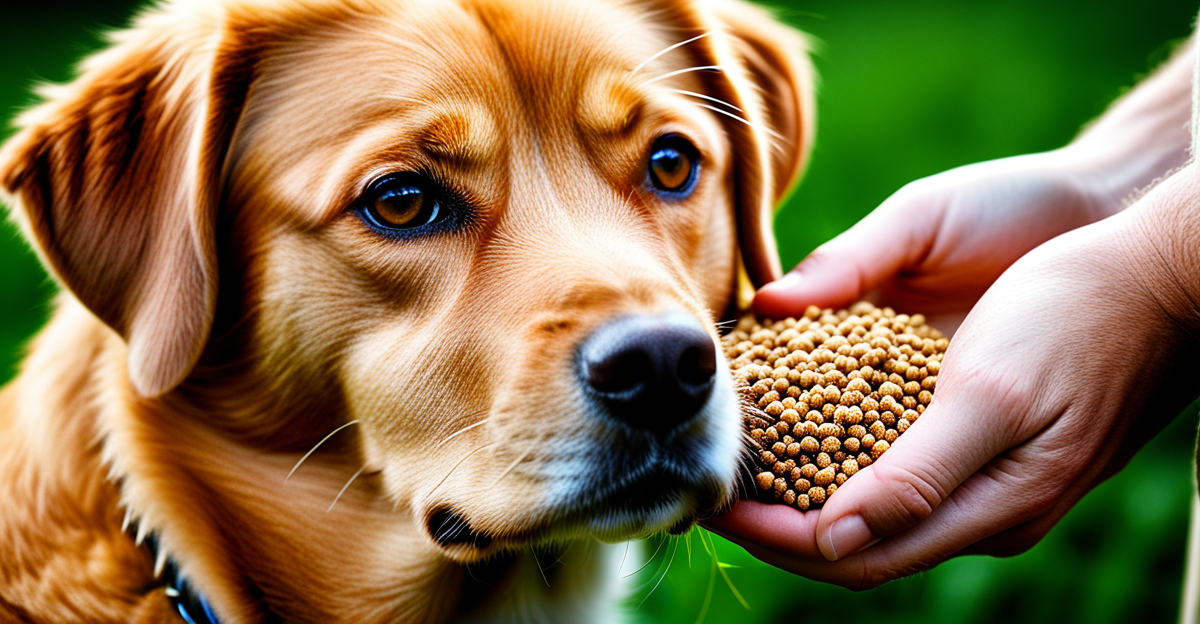Key Factors Shaping UK Pet Dietary Needs
Understanding UK pet dietary needs requires examining several crucial factors influencing UK pet diets. One major aspect is the unique environmental and climate considerations across the UK. The often damp and variable weather impacts pets’ energy requirements and hydration, necessitating diets that balance moisture and calorie content appropriately. For example, outdoor pets in colder regions may need higher fat content for energy.
Another critical influence is the predominant pet breeds found in the UK, such as Border Collies, Labrador Retrievers, and British Shorthair cats. Each breed has distinct nutritional demands; larger breeds often require joint-support nutrients like glucosamine, while smaller or older pets may need diets lower in calories but higher in specific vitamins.
This might interest you : How Can UK Residents Protect Their Pets During a Heatwave?
Common health concerns further shape UK pets’ nutrition. Issues such as obesity, dental problems, and allergies are prevalent, guiding dietary formulations toward weight management, dental health support, and hypoallergenic ingredients. Understanding these factors ensures tailored nutrition that promotes optimal health while addressing endemic challenges in the UK pet population.
Key Factors Shaping UK Pet Dietary Needs
Understanding UK pet dietary needs starts with recognizing the unique environmental conditions and climate across the region. The UK’s cooler, often damp weather influences pets’ energy requirements and the types of nutrients needed to maintain optimal health and coat condition. For example, some UK dogs may need diets richer in fats for better insulation.
Also to read : What are the legal responsibilities of pet owners in the UK?
Breed prevalence in the UK plays a significant role in shaping pet nutrition. Breeds common to the UK, such as Labradors and Border Collies, often require balanced diets tailored to maintain joint health and energy levels, given their activity patterns. Specific breeds may also have genetic predispositions to certain health issues, influencing their dietary needs.
Common health concerns among UK pets—such as obesity, dental disease, and allergies—intensify the focus on proper nutrition. These factors demand diets with controlled calorie content, balanced minerals, and hypoallergenic ingredients, addressing both prevention and management.
Factors influencing UK pet diets ultimately merge climate considerations, breed-specific requirements, and prevalent health challenges. Together, these shape comprehensive guidelines for UK pets nutrition to ensure pets thrive in diverse living conditions.
Impact of UK Pet Food Regulations on Diet
UK pet food regulations set clear standards for pet food quality and safety, significantly influencing UK pet dietary needs. The regulatory framework requires that all pet foods meet strict ingredient standards and limits on permitted additives to ensure pets receive safe, nutritious meals. For example, artificial preservatives and harmful substances are closely controlled to protect pet health.
Recent changes in pet nutrition laws UK following Brexit have affected ingredient sourcing and import rules, impacting product availability and formulation. These modifications help maintain high safety levels but can lead to shifts in which ingredients are commonly used in UK pet food.
Moreover, pet food standards UK enforce transparency in nutritional labeling, allowing pet owners to make informed decisions aligned with their pets’ breed, health, and life stage needs. Compliance with these regulations means diets can better respond to diverse UK pet dietary needs, balancing nutrients with safety and quality.
Understanding UK pet food regulations is essential for manufacturers and pet owners alike, as these laws drive the quality and composition of diets available, directly shaping the market and improving overall UK pets nutrition outcomes.
Impact of UK Pet Food Regulations on Diet
UK pet food regulations establish strict pet food standards UK manufacturers must follow to ensure safety and nutritional adequacy. These regulations cover ingredient quality, labeling accuracy, and permissible additives, directly affecting UK pet food regulations and the nutritional content pet owners can trust.
Ingredient standards require that only approved substances, such as certain vitamins and minerals, are included, eliminating harmful additives. This guarantees that UK pet dietary needs are met with safe and appropriate components. For example, pet foods must avoid controversial preservatives or fillers banned under UK law.
Post-Brexit changes have introduced new challenges and opportunities. While the UK has maintained high regulatory standards similar to the EU, evolving pet nutrition laws UK have caused some shifts in available ingredients and supply chains. These regulatory updates impact manufacturers and consumers alike, influencing formulation decisions to comply with both local and international standards.
Understanding these regulations helps pet owners select products aligned with UK pets nutrition requirements while ensuring safety. Recognizing how UK pet food regulations shape ingredient inclusion and product labeling supports confident, informed choices in feeding pets.
Ingredient Availability and Local Sourcing in UK Pet Food
The selection of UK pet food ingredients is heavily influenced by the country’s rich agricultural landscape. Commonly used components include locally sourced meats like lamb and beef, cereals such as barley and oats, and vegetables including peas and carrots. These ingredients provide a balanced nutrient profile aligned with UK pets nutrition needs.
Local pet food sourcing benefits the UK pet food industry by supporting sustainability and reducing carbon footprints. British pet food manufacturers often prioritize regional ingredients to ensure freshness and traceability. This practice also helps maintain consistent quality, meeting the growing demand for transparency in pet nutrition.
Sourcing practices in the UK consider environmental impact, prompting a shift toward renewable and responsibly harvested ingredients. This sustainability focus aligns with consumer preferences, making British pet food not just nutritious but ethically appealing. For pet owners, understanding the origins of pet food ingredients aids in making confident choices tailored to the factors influencing UK pet diets, such as climate and breed-specific requirements.
Ingredient Availability and Local Sourcing in UK Pet Food
Understanding UK pet food ingredients is key to appreciating how local sourcing shapes pet diets. The UK benefits from diverse agriculture, providing staple ingredients like lamb, poultry, and root vegetables commonly used in British pet food. These ingredients align well with UK pet dietary needs, supplying wholesome nutrients tailored to local environmental conditions and pet breed requirements.
Local pet food sourcing also supports sustainability goals. By prioritizing British-grown produce and meats, manufacturers reduce transport emissions and ensure fresher ingredients. This approach responds to growing consumer demand for ethically produced pet food, linking UK pets nutrition with environmental responsibility.
Moreover, ingredient availability can fluctuate due to seasonal changes or regulatory shifts, influencing formulations. For example, fish sourced from UK waters is prized for omega-3 fatty acids crucial for coat and joint health. These regional resources enhance diet quality but require attention to consistent supply.
By focusing on locally sourced ingredients, UK pet food ingredients offerings not only meet strict nutritional standards but also embody a commitment to sustainable production, benefiting pets and the environment alike.
Key Factors Shaping UK Pet Dietary Needs
The diverse UK pet dietary needs depend heavily on factors influencing UK pet diets, particularly the country’s environmental, breed-specific, and health-related contexts. The UK’s often damp and temperate climate means many pets require diets that support energy maintenance and moisture balance to stay comfortable and healthy. For example, outdoor dogs in colder, wetter regions may benefit from higher fat intake to sustain body heat.
Predominant breeds such as Border Collies and British Shorthairs present unique nutritional demands. Active breeds need balanced energy sources and joint-support nutrients, whereas less active or aging pets may require calorie-controlled diets rich in vitamins. These breed-specific adjustments are crucial components of comprehensive UK pets nutrition.
Additionally, common health issues like obesity, dental conditions, and allergies shape dietary formulations. These concerns guide the creation of specialized diets that regulate calorie intake, include dental-supporting ingredients, and feature hypoallergenic components. Recognizing these key factors shaping UK pet dietary needs enables owners and manufacturers to align diets precisely with each pet’s environment, genetics, and health challenges.
Key Factors Shaping UK Pet Dietary Needs
The UK pet dietary needs are shaped primarily by unique environmental factors, breed-specific requirements, and prevalent health issues. The UK’s cool, damp climate affects energy demands, often increasing the need for moisture-rich diets that maintain hydration and support coat health. Pets exposed to colder conditions may require higher fat levels for insulation and sustained energy.
Breed characteristics play a crucial role in factors influencing UK pet diets. Common UK breeds such as Border Collies and Labradors have distinct metabolic rates and activity levels, influencing their nutrient needs. Larger breeds often benefit from joint-supporting nutrients, while smaller or older pets may need more calorie-controlled diets to prevent obesity.
Health concerns such as obesity, dental problems, and allergies are widespread among UK pets. These conditions drive the formulation of UK pets nutrition with hypoallergenic ingredients and balanced calorie content. Addressing these concerns through diet helps improve pets’ quality of life while matching their distinct environmental and genetic needs. Understanding these key factors enables targeted nutritional strategies that benefit all UK pets.
Key Factors Shaping UK Pet Dietary Needs
UK pet dietary needs are shaped primarily by factors influencing UK pet diets such as climate, breed, and common health issues. The UK’s temperate and often damp weather affects energy requirements; pets in colder or wetter areas may need diets higher in fats to maintain body heat and support hydration, ensuring proper moisture balance.
Predominant breeds like Border Collies, Labradors, and British Shorthairs each bring unique nutritional demands. Active breeds generally require higher energy intake and joint-supporting nutrients, while less active or older pets benefit from calorie-controlled diets enriched with vitamins and minerals to maintain health without excess weight gain.
Health concerns are pivotal in shaping UK pets nutrition. Obesity, dental problems, and food allergies are widespread, prompting tailored diets focusing on calorie control, dental health ingredients, and hypoallergenic components. These key factors ensure UK pet dietary needs are met comprehensively, promoting longevity and well-being adapted to the region’s environment, breed-specific requirements, and prevalent health challenges.
Key Factors Shaping UK Pet Dietary Needs
The UK pet dietary needs are strongly influenced by the country’s distinct environment, breeds, and common health concerns. The UK’s cool, damp climate often impacts energy and moisture requirements in pets’ diets. Pets exposed to colder, wetter conditions may need higher fat content to maintain body heat and energy, alongside moisture-rich foods to support hydration and coat health.
Breed-specific requirements are critical among the factors influencing UK pet diets. Popular UK breeds like Border Collies and Labradors show different metabolic rates and activity levels. Active breeds generally benefit from nutrient-dense, joint-supporting diets, while senior or smaller pets often require calorie-controlled food to prevent obesity and support overall wellness.
Health issues such as obesity, dental disease, and allergies present common challenges shaping UK pets nutrition. Diets formulated with hypoallergenic ingredients and balanced calories help manage these conditions effectively. Addressing these factors ensures pet food products meet distinct environmental, genetic, and health needs, promoting optimal health across diverse UK pet populations.
Key Factors Shaping UK Pet Dietary Needs
The UK pet dietary needs are distinctly influenced by factors influencing UK pet diets including climate, breed, and health conditions. The UK’s temperate, often damp environment impacts pets’ hydration and energy balance. Pets in colder or wetter areas may require higher fat content to maintain body heat and sustain energy, supporting overall UK pets nutrition.
Breed-specific nutritional demands are vital. Common UK breeds like Border Collies, Labradors, and British Shorthairs exhibit unique metabolic rates and activity levels. Active breeds need increased energy and joint-supporting nutrients, while older or smaller pets require calorie-controlled, vitamin-rich diets. Addressing these breed-related differences ensures tailored UK pet dietary needs are met effectively.
Health concerns such as obesity, dental issues, and allergies significantly direct dietary formulations. Diets emphasizing calorie control, dental health support, and hypoallergenic ingredients effectively target these common problems. Combining environmental, breed, and health factors secures comprehensive UK pets nutrition, enabling optimized well-being adapted to regional and genetic demands.






